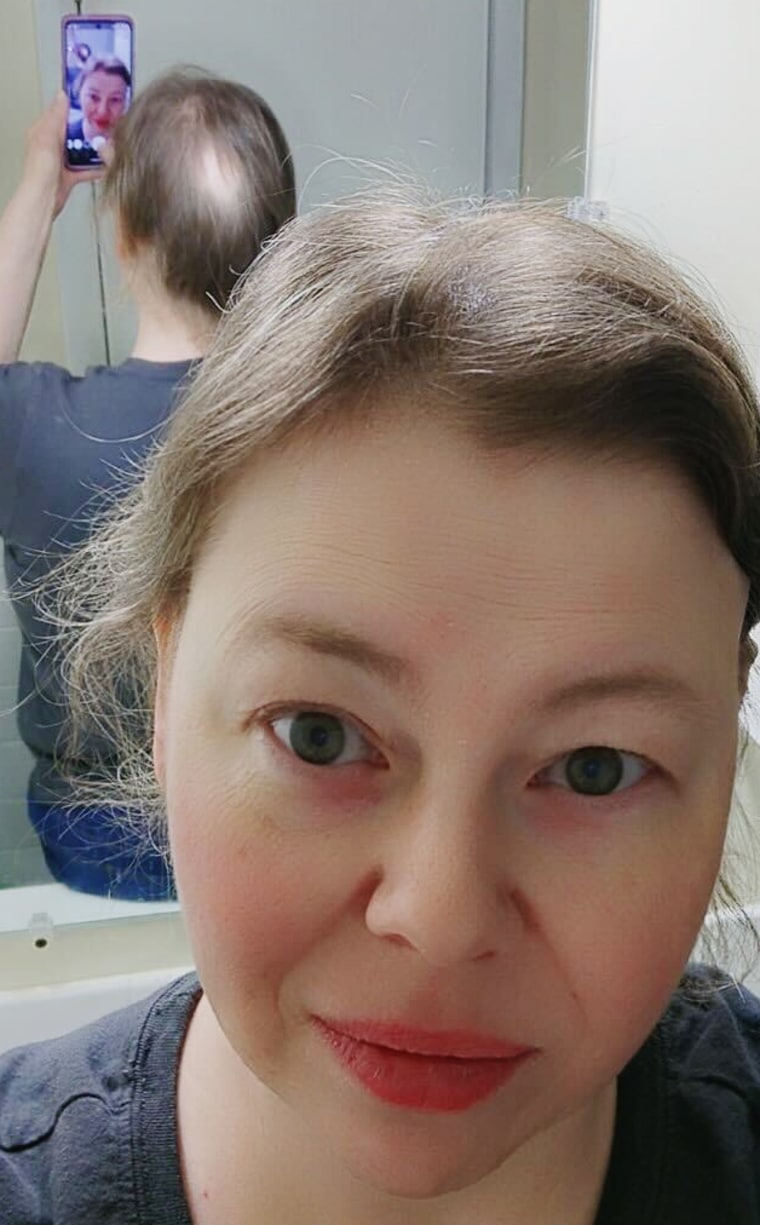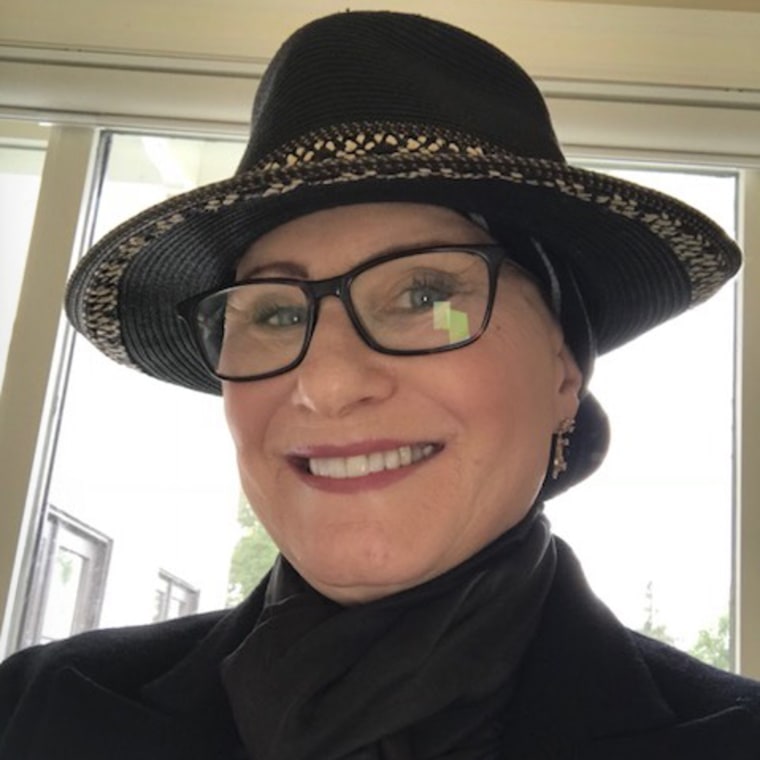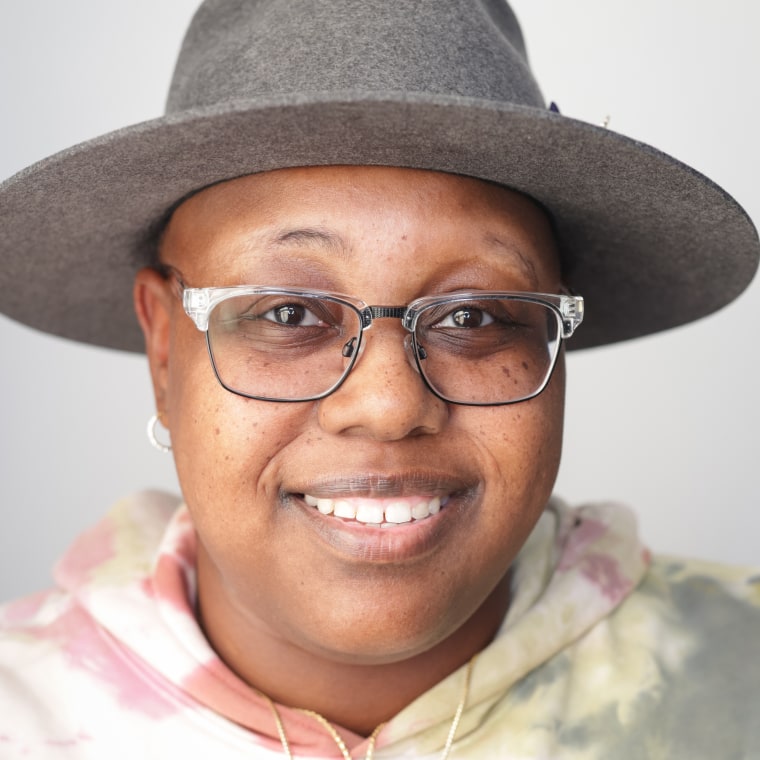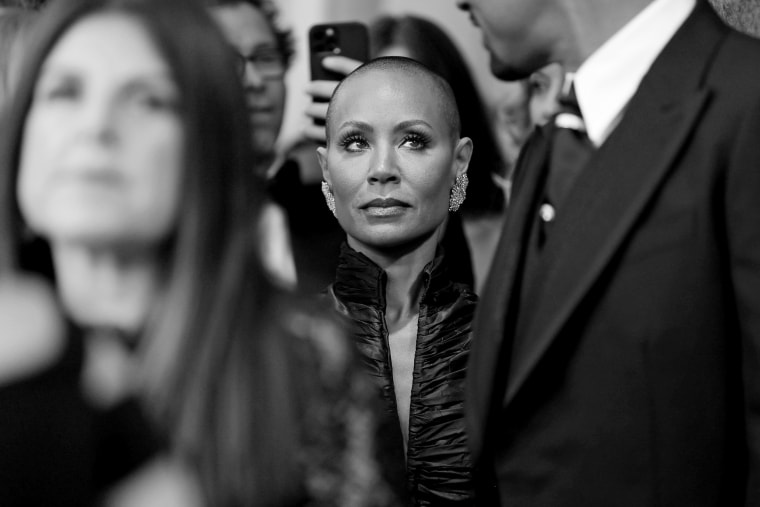Dia DiRosa was about 6 years old when fistfuls of her hair started coming out as her mom washed it. She began waking up to clumps of hair on her pillow.
Diagnosed with alopecia areata, DiRosa was the subject of stares, snickers and rumors. The medical condition results in loss of hair, which sometimes grows back and sometimes does not, left DiRosa completely bald for many years.

When she was a child, others in her tiny town tiptoed around her, whispering that she had cancer. When her mom got her a wig to wear to school, a boy behind her in class pushed it off her head with his pencil, laughing as he tossed it to another student.
The memories came rushing back to DiRosa, 43, when she heard Chris Rock joke at Sunday night’s Academy Awards ceremony about Jada Pinkett Smith, who also lives with alopecia, as “G.I. Jane 2” — a reference to the 1997 film for which actress Demi Moore shaved her head.
“Would you point out someone’s diabetes and laugh at that?” asked DiRosa, who lives in Willoughby, Ohio. “Society assumes women have long, flowing hair. With this, you can’t. It’s not your choice. Your body doesn’t let you.”
The stunning development that happened next — Smith striding to the stage on live television to slap Rock — was something that DiRosa, while she did not outright support it, said she did not blame him for.
“It was an emotional moment,” she said.
Other women with alopecia said Smith’s response ruined the chance to educate the public about a rare disease that, while it is not physically painful, can be incredibly isolating.

“It’s one thing to feel supportive of somebody, but violence and aggression is not OK under any circumstances,” said Thea Chassin, the founder and CEO of Bald Girls Do Lunch, a nonprofit organization that provides support for women with hair loss. “It was a missed opportunity to do something positive.”
Smith later apologized. On Monday, he called his behavior “inexcusable” in an Instagram post, explaining that “a joke about Jada’s medical condition was too much for me to bear.”
Before that, both Rock’s comment and Smith’s slap prompted a variety of reactions among women with alopecia. Regardless of how they felt, all said the incident underscored the value that society puts on hair — particularly for Black women, which Rock himself explored in his 2009 documentary, “Good Hair.”
“Joking about anybody’s physical differences is never appropriate, and because alopecia areata is visible, there are so many people, unfortunately, who are ashamed of it,” said Chassin, of Briarcliff Manor, New York.
What is alopecia areata?
Pinkett Smith, 50, has been open about her struggles with alopecia, having shared the first time she experienced severe hair loss on an episode of “Red Table Talk” in May 2018.
“It was terrifying when it first started,” she said on the show. “It was one of those times in my life where I was literally shaking with fear.”
Alopecia areata is an incurable medical condition that can affect only the scalp and the face or, in more severe cases, involve the entire body. Hair loss is often sudden.
While its exact cause is unknown, alopecia is believed to be an autoimmune disease in which the immune system mistakenly attacks healthy hair follicles.
Men and women are equally affected, according to the National Alopecia Areata Foundation. Its overall prevalence is low — the lifetime risk of developing it is 2.1 percent, according to the foundation — and a large 2018 study found that in the U.S., Black and Hispanic women had greater incidences of it compared to white women.
Alopecia often develops in childhood or young adulthood, and for some, it resolves on its own. For others, depending on which type of the disease they have, hair may fall out and regrow in unpredictable cycles. Others just have progressive hair loss.
While there is no cure, some people have had varying success with topical and injectable drugs.
The disease can have profound effects on the self-esteem of those who suffer from it.
Shivonne Odom, 39, of Washington, D.C., who was diagnosed with central centrifugal cicatricial alopecia in 2016, said she cried many times in front of her hairdresser and her dermatologist as she dealt with hair loss. Odom said it took almost two years for her to get a proper diagnosis of her form of alopecia, which causes scarring that leads to permanent hair loss and is the most frequent cause of scarring hair loss in Black women.
Because Rock’s documentary focused on the damage from certain Black hair products and styles, Odom said she was particularly disappointed in his comments.
“It really encouraged us to have conversations about protecting our Black hair,” she said, “and then he made a comment about Jada Pinkett Smith’s hair — it’s like, he knows better.”
Others, like Asia McMillan, 31, of Orlando, Florida, took a slightly softer stance.

“I was kind of on the side of both,” McMillan said. “It was kind of comical. But at the same time, it was offensive to her and her condition not knowing how she is personally dealing with it.”
McMillan has had alopecia areata since she was 4. After she lost all her hair in 2019, she decided to embrace the change.
“I wear hats from time to time, and I was wearing hats before my hair fell out in 2019,” she said. Shaving her head and going out into the world with her new look also allowed McMillan to free herself from “the baggage that comes with having alopecia,” she said.
While she disagrees with how Smith handled the situation, she said she applauds him for standing up for his wife.
“You have to understand and kind of sympathize and empathize with other people and what they’re going through,” McMillan said. “And be cognizant and be mindful that the things that you say can affect and can hurt other people.”
Odom hoped the focus would stay on Pinkett Smith and what she has done to raise awareness about alopecia, not on the controversy that took place at the Oscars.
“As Black women, we talk a lot about hearing us,” Odom said. “We talk a lot about protecting us. Are we still trying to hear this Black woman, or are we focused on the activities of these two men?”


